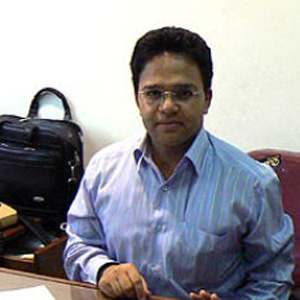High Nuclear Enrichment; Could It Spur West Into Action?
By Rahman Qahremanpour, foreign affairs analyst and editor-in-chief of Diplomatic Hamshahri

Timing seems to be the stumbling block to an agreement between Iran and West on nuclear fuel exchange. While Tehran insists on simultaneous exchange of fuel and its enriched uranium stockpile, West wants Tehran to send its stock of low enriched uranium abroad before receiving higher-grade uranium in return.
Iran had warned in advance that rejection of its preferred swap mechanism would drive it towards initiation of higher uranium enrichment. Ahmadinejad’s order to Iran’s head of Atomic Energy Organization Ali Akbar Salehi to start production twenty percent uranium enrichment will not have any tangible impact on the fuel swap deal. The ball is now in Five plus One’s court and they seem to have no way other than accepting simultaneous fuel swap.
Iran actually announced ready to embark on high uranium enrichment when Geneva talks led to no beneficial deal. The reaction was not first of its type however. Tehran announced that it would construct ten new enrichment facilities when IAEA Board of Governor’s passed a resolution against Iran in November 2009. In its record it has also retaliatory acts such as lowering the level of cooperation with IAEA and announced that it will construct twenty thousand megawatts of ten nuclear power plants.
Materialization of these decisions and the impact of their announcement on nuclear fuel exchange are separate issues. The practicality of government’s decision can be put to discussion, but the key point here is the impact of twenty percent uranium enrichment on fuel exchange deal. Any possible agreement would not depend on government’s decision, since the basic point of the deal is the timing and volume of uranium exchanged.
A key question in twenty percent uranium enrichment: how long will it take? The high-tech procedure requires modifications in Natanz enrichment facility. Naturally, no changes could be carried out unless under IAEA supervision. Installation of new surveillance cameras, physical and data verification all make the process lengthier.
Ahmadinejad’s order for high uranium enrichment may have been an attempt to prompt Five plus One accept Iran’s terms for nuclear swap, but time could only answer the practicality of this plan. At the current circumstances, West has rejected Iran’s suggested mechanism for nuclear fuel exchange and reports say that a new draft of sanction resolution is circulating among UN Security Council members.
Iran had warned in advance that rejection of its preferred swap mechanism would drive it towards initiation of higher uranium enrichment. Ahmadinejad’s order to Iran’s head of Atomic Energy Organization Ali Akbar Salehi to start production twenty percent uranium enrichment will not have any tangible impact on the fuel swap deal. The ball is now in Five plus One’s court and they seem to have no way other than accepting simultaneous fuel swap.
Iran actually announced ready to embark on high uranium enrichment when Geneva talks led to no beneficial deal. The reaction was not first of its type however. Tehran announced that it would construct ten new enrichment facilities when IAEA Board of Governor’s passed a resolution against Iran in November 2009. In its record it has also retaliatory acts such as lowering the level of cooperation with IAEA and announced that it will construct twenty thousand megawatts of ten nuclear power plants.
Materialization of these decisions and the impact of their announcement on nuclear fuel exchange are separate issues. The practicality of government’s decision can be put to discussion, but the key point here is the impact of twenty percent uranium enrichment on fuel exchange deal. Any possible agreement would not depend on government’s decision, since the basic point of the deal is the timing and volume of uranium exchanged.
A key question in twenty percent uranium enrichment: how long will it take? The high-tech procedure requires modifications in Natanz enrichment facility. Naturally, no changes could be carried out unless under IAEA supervision. Installation of new surveillance cameras, physical and data verification all make the process lengthier.
Ahmadinejad’s order for high uranium enrichment may have been an attempt to prompt Five plus One accept Iran’s terms for nuclear swap, but time could only answer the practicality of this plan. At the current circumstances, West has rejected Iran’s suggested mechanism for nuclear fuel exchange and reports say that a new draft of sanction resolution is circulating among UN Security Council members.

